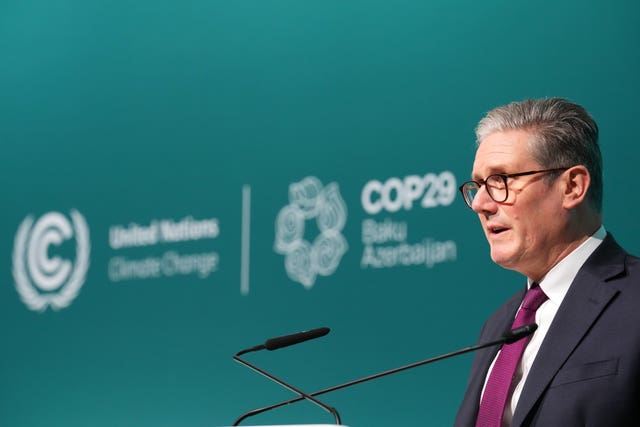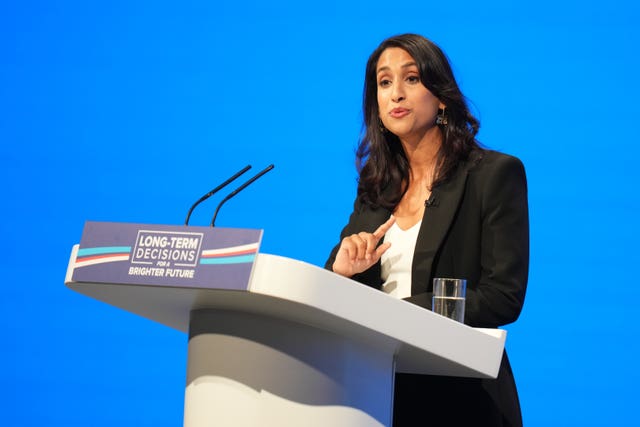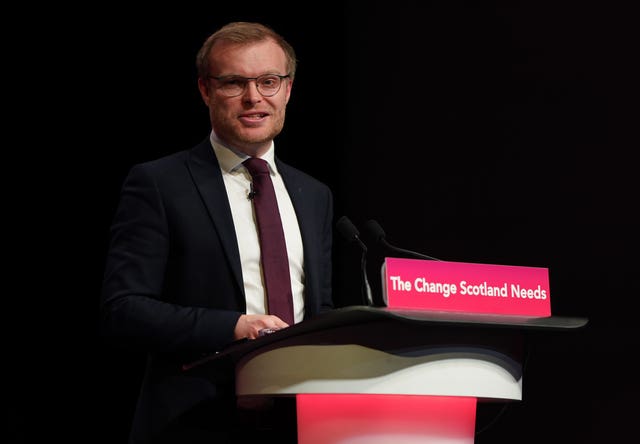
The Prime Minister’s pledge to cut emissions by 81% will lead to “hardship” for the British people, shadow energy secretary Claire Coutinho has told MPs.
During energy questions in the Commons, Ms Coutinho claimed that for the Government to reach that goal it would require a “shift away from meat and dairy” and “less travel”, while energy minister Michael Shanks insisted the move away from carbon would lead to lower bills.
The 81% cut, unveiled by Sir Keir Starmer at UN Cop29 talks in Azerbaijan, is in line with the recommendation from independent advisers the Climate Change Committee (CCC), as well as with existing legally-binding domestic targets.
This target forms the UK’s latest nationally determined contribution (NDC) – a commitment countries make to reduce their greenhouse gas emissions to mitigate climate change.

Ms Coutinho told MPs the Prime Minister’s announcement was making the UK’s “already stringent carbon emission targets even higher”.
She continued: “That’s despite the fact that we’re only 1% of global emissions, and whilst the leaders of the world’s highest emitting countries, making up over 60% of emissions, are not attending.
“The Climate Change Committee has said this target will require, for an example, an accelerated shift away from meat and dairy, less travel and a gas boiler ban for the British people, and yet the Government’s approach would see our reliance on Chinese imports – a country which is 60% powered by coal – go through the roof.
“So does the Minister agree that an approach which is asking for more sacrifice and hardship from the British people in return for more goods from one of the world’s largest carbon emitters would mean less jobs in Britain and more carbon in the atmosphere?”
Energy minister Kerry McCarthy replied: “I think it’s really important having attended Cop last year as part of a cross-party delegation, it was incredibly depressing to see the way the UK was received.
“It’s really important that we are stepping up and showing global ambition, reaching Net Zero in this country and getting to clean power by 2030 is a massive opportunity. It is not a cost.”

Earlier, Mr Shanks reiterated the Government’s assurances that clean power initiatives will lead to lower energy bills.
Conservative former minister Tom Tugendhat said an extra £40 billion a year of investment in the energy sector would involve “taxes to go with it”.
He asked: “Is there anything at all in his proposal that’s actually going to bring down the cost of energy and not be replaced by taxpayer funding? Because it appears at the moment there is zero, and already energy prices are going up.”
Mr Shanks replied: “I would encourage (Mr Tugendhat) to read the NESO (National Energy System Operator) report, because it does in great detail set out that not only is clean power 2030 achievable, but that it will lead to lower bills.
“Companies are choosing to invest in this country when they didn’t under the party opposite, and the reality that he has to answer is that once upon a time this party opposite recognised that the drive to net zero was important – they’ve abandoned that commitment now.”

Ms Coutinho also referred to the NESO report as she raised a Point of Order on Government ministers saying the report would lower bills when she claimed it “makes it clear that no such thing will happen”.
She told Commons Speaker Sir Lindsay Hoyle: “So if ministers go and actually read their own report and realise that they’ve misled the House, could you advise whether it would be appropriate for them to come back and apologise?”
The NESO report states: “There may be opportunities to reduce costs, to access cheaper capital and/or to increase competition. However, there are also risks that the accelerated pace reduces competitive pressure, increases supply chain tightness or otherwise increases costs.
“Managing these risks and opportunities will be a key challenge for the Clean Power 2030 Unit.”


Comments: Our rules
We want our comments to be a lively and valuable part of our community - a place where readers can debate and engage with the most important local issues. The ability to comment on our stories is a privilege, not a right, however, and that privilege may be withdrawn if it is abused or misused.
Please report any comments that break our rules.
Read the rules hereLast Updated:
Report this comment Cancel